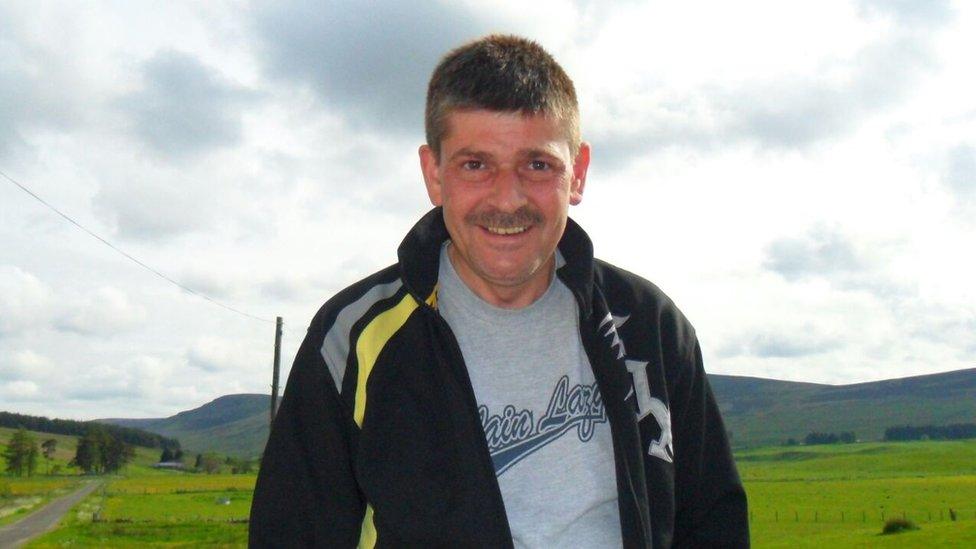Carseview patients 'pinned to the floor' and 'bullied'
- Published

Carseview Centre is already the focus of an independent inquiry
Patients at a mental health unit have told the BBC they were pinned to the floor in agony and bullied on wards where illegal drugs were rife.
Former patients at the Carseview Centre in Dundee claimed staff had used face-down restraint violently and repeatedly over the past five years.
They said the practice was used for prolonged periods and patients were also mocked and shouted at by staff.
NHS Tayside said it would investigate the claims in full and "will act".
The allegations have led to calls for the unit to be closed down.
Systemic failures
Carseview is the biggest mental health unit in Tayside, with about 80 beds over five wards. Hundreds of patients a year are treated there.
The unit is already the subject of an independent inquiry into mental health services, after families of suicide victims campaigned for change.
A Fatal Accident Inquiry, external published last week into the death of Dale Thomson said there were "serious systemic failures in the care" he received at Carseview.
The latest allegations against Carseview centre feature in a BBC Scotland documentary, Breaking Point, which will be broadcast on Monday.
The BBC has spoken to 24 people who have been in the Carseview in the past five years.
Sixteen of them said they saw that illegal drugs were available at the unit.
Eleven patients said they had been unreasonably restrained face-down.
A further seven said they had seen this happening to other patients.
Guidelines say face-down restraint, which can restrict a patient's breathing, should last no longer than 10 minutes and should only be used as an absolute last resort.
There have been calls for it to be banned because of the risk it can physically harm patients, as well as re-traumatise people who have been victims of violence and abuse.

'It was like he was taking his frustration out on me'
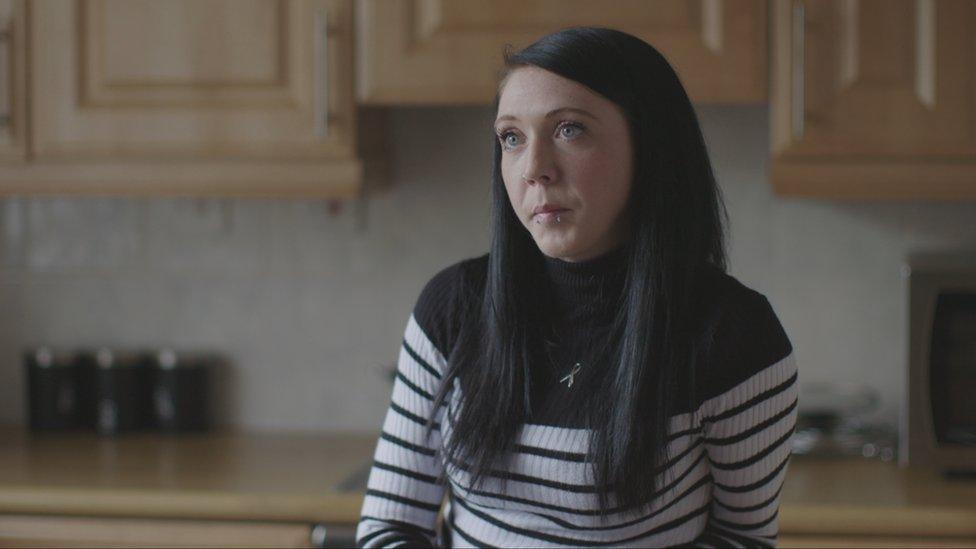
Adele said the way she was held down caused bruising and swelling to her knee
Former youth worker Adele Douglas, from Forfar, was admitted to Carseview last year, after experiencing depression and anorexia.
She was on 24-hour suicide watch, and, after a serious attempt to take her own life, staff pinned her to the ground.
Adele said she shouted about being in pain and one member of staff reacted badly.
She said: "At this point I was going absolutely mad, then he'd lifted his hand and slapped me really hard on my thigh.
"When he slapped me he said, 'That's enough of that'.
"The guy was really rough with me. It was like he was taking his frustration out on me."
Adele, who is asthmatic, said she was struggling to breathe and that her knee was badly bruised by the way she was restrained.
She said a nurse later told her she had been held down for 45 minutes to an hour.
She said some of the staff were very professional but that she was pinned down in this way three times during her time in Carseview.

Illegal drugs on the ward "all the time"
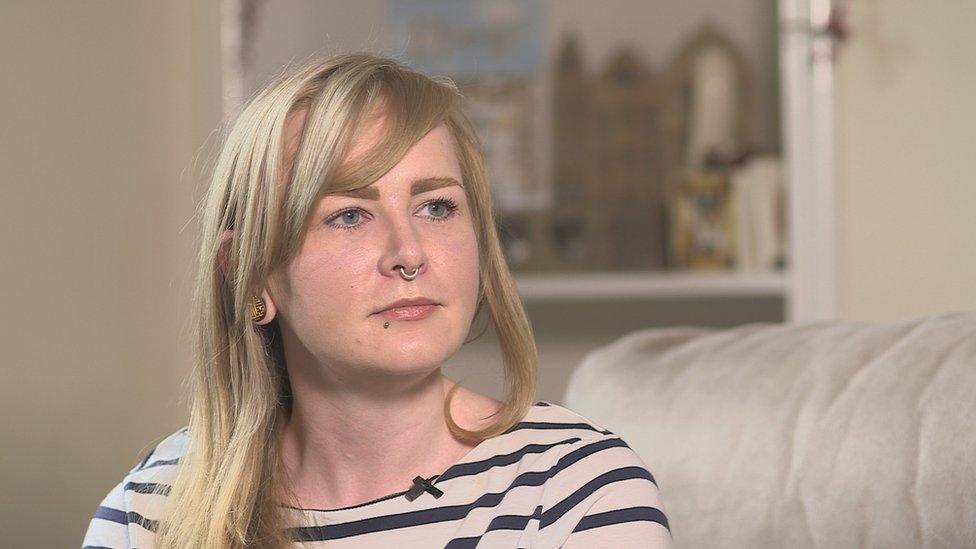
Marnie Stirling said she saw patients selling drugs to other patients
Adele was one of the 16 patients who told the BBC that drugs were available inside the unit.
Marnie Stirling, who had two stays in Carseview, with anxiety and depression, also said she saw illegal drugs on the ward "all the time".
"It was rife," she said.
"Everyone was offered them. Cannabis was the easiest one to get."

'The restraints felt like punishments'
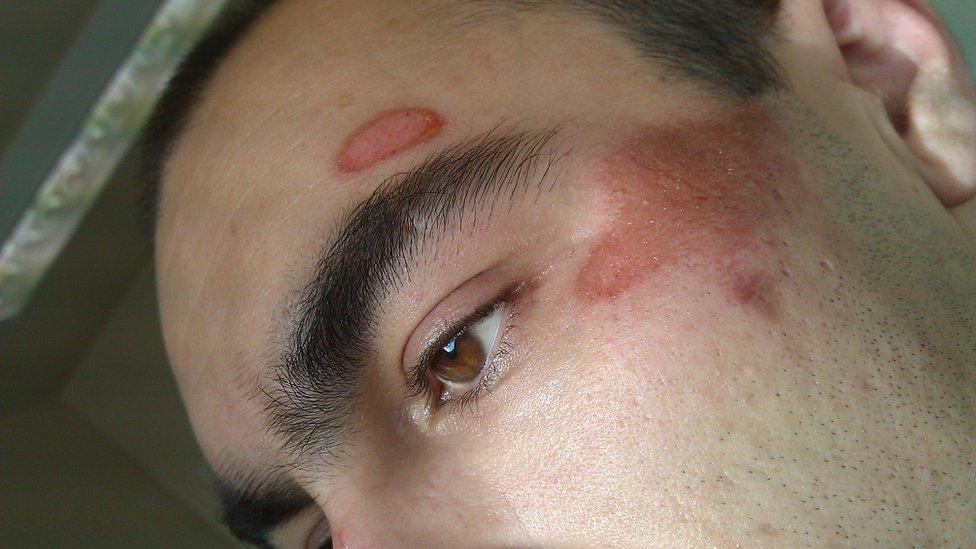
David Fong says this photo, taken in 2013, was a result of being restrained in Carseview
David Fong spent a month in the unit after experiencing psychosis in 2013.
He claimed staff used restraint violently and repeatedly during his time there.
David said: "The restraints in Carseview definitely did feel like punishments. I think it was also the nurses wanted to maintain their authority above the patients."
"It does cause trauma," he added. "Things you'll never forget."

'Not an acceptable approach'
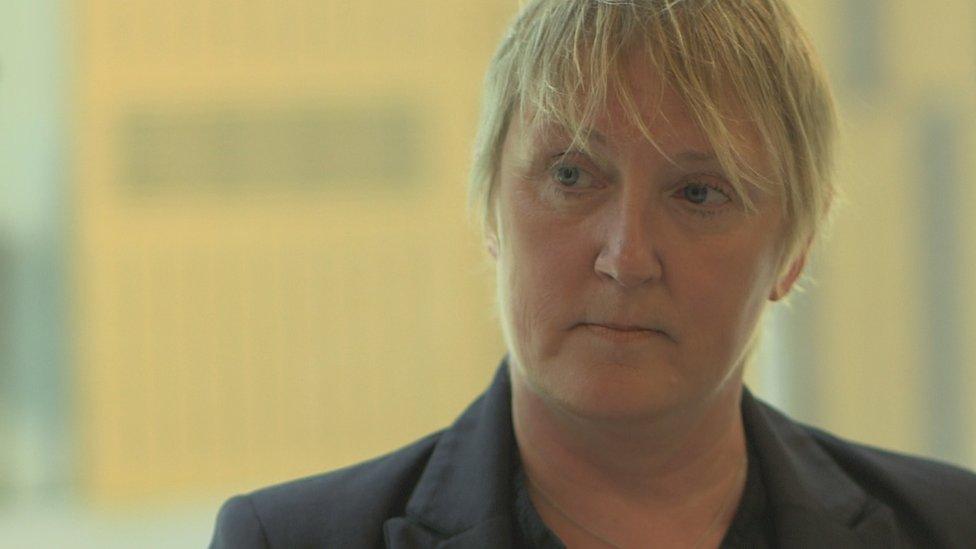
Joy Duxbury said restraint should be used as a last resort to prevent patients getting more agitated or violent
The programme showed the testimony gathered by the BBC to two independent experts.
These individuals have never worked at Carseview and are not witnesses to conditions there but they described the allegations made by the patients as abusive.
Joy Duxbury, professor of mental health at Manchester Metropolitan University, is an expert on how the rules on restraint should be carried out in practice in the wards.
She said patients should not end up with burn marks like David's if restraint was carried out properly.
"Rubbing of a face in to a carpet is certainly not an acceptable approach and would never be taught as part of prevention and management of violence and aggression," she said.

'Once you get a culture like that, it's very difficult to move it'
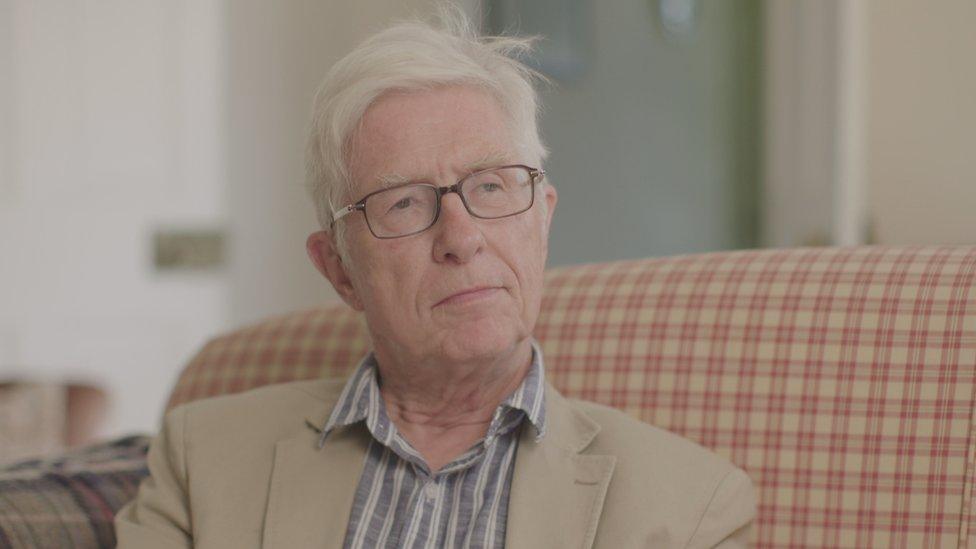
Professor Peter Tyrer chaired the group which wrote the guidelines on how to handle mental health patients
Professor Peter Tyrer, who co-wrote the guidelines on how to handle mental health patients, said he was concerned the culture at Carseview had become so toxic it should be closed.
"I know that there are various changes going on there but I think once you get a culture like that which has been there for a long time, it's very difficult to move it," he said.
"What really concerns me is that if this unit persisted, it would represent a continuing scandal in mental health care."

'We will listen and we will act'
NHS Tayside said it was very concerned by the nature of the allegations.
It did not respond to the call for Carseview to be closed down.
It said it could not discuss "individual cases due to patient confidentiality" and would not be interviewed.
The health board said it would like to include the allegations in an ongoing independent inquiry into mental health services in Tayside.
Chairman John Brown said: "We take any concerns raised with us very seriously and we want to be able to investigate people's experiences in detail and take any appropriate action.
"That is why I would encourage patients to come forward and share their own stories with us. We will listen and we will act."
- Published30 May 2018

- Published9 May 2018
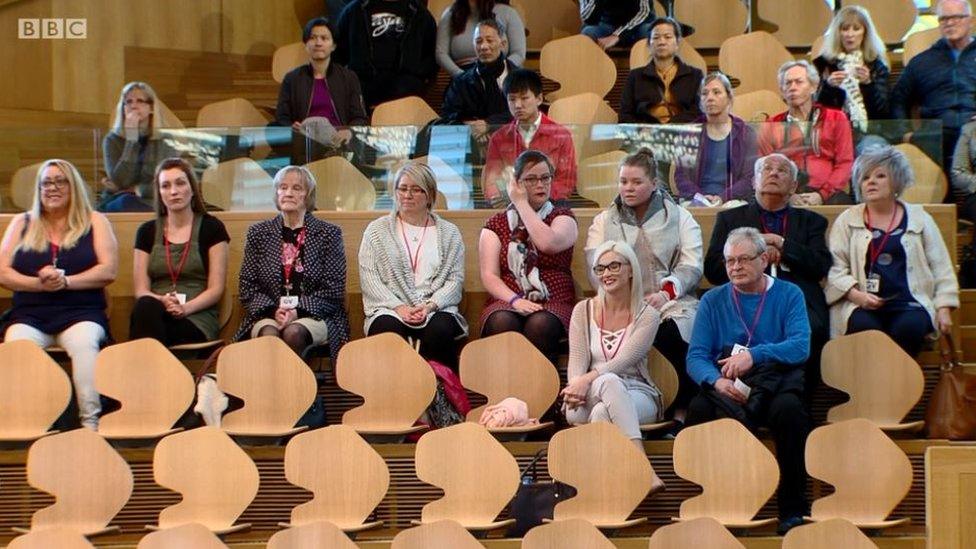
- Published3 May 2018
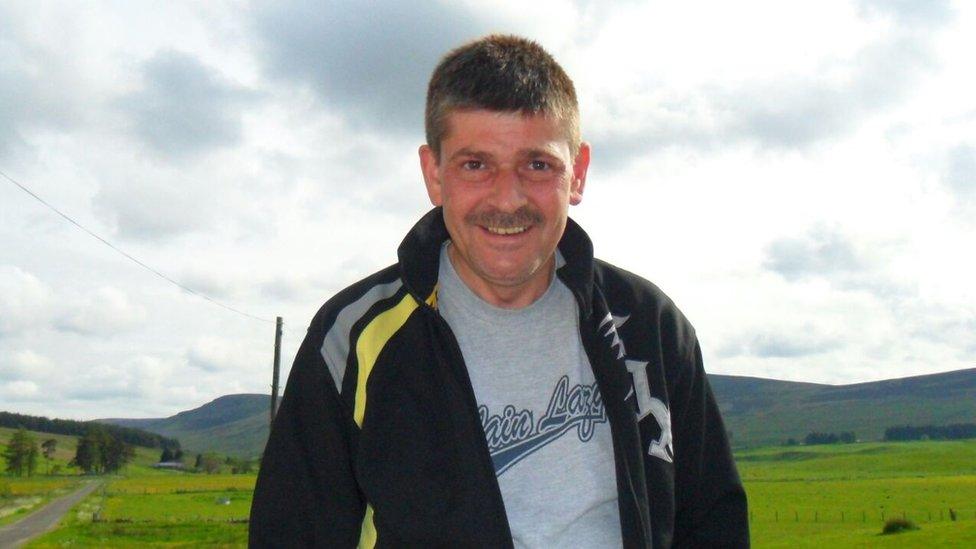
- Published4 May 2018
